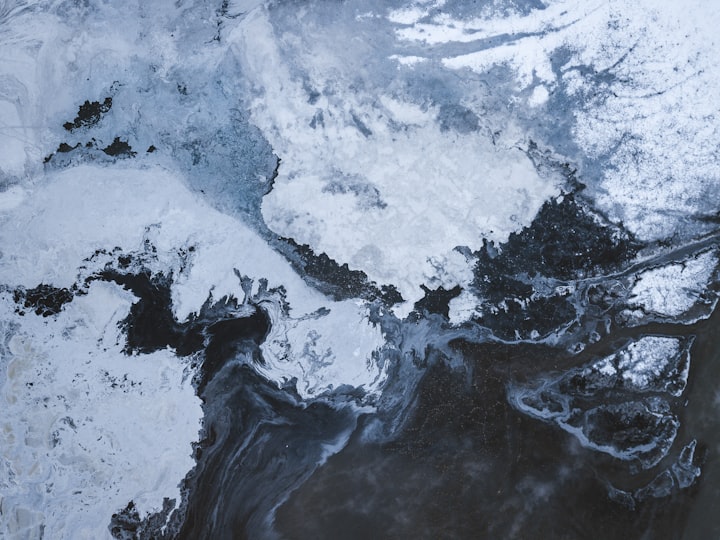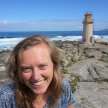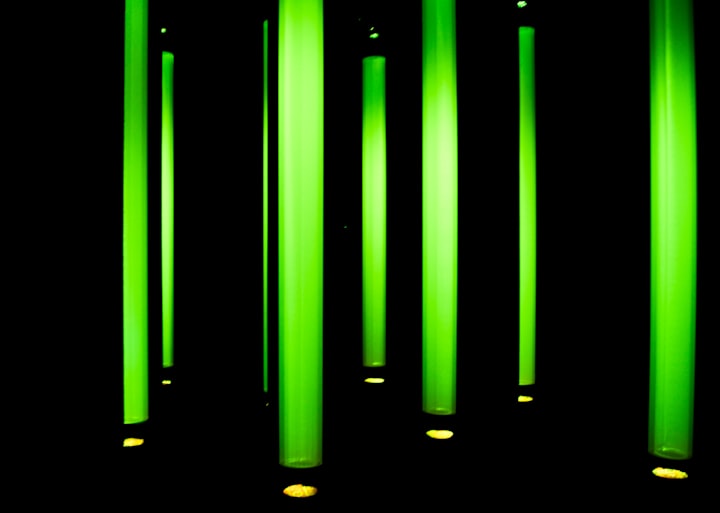
Summer has come again. The nights are loud with insects and bright with lightning. Fireflies dance among the trees flush with fragrant leaves, their lanterns a ping ping ping of waves lilting in the darkness. The lily pads float on the surface of the pond again, on the brink of blooming.
In the spring and in the fall, winter sits barely hidden, either a memory or a premonition, above the water. But in summer, the recollection of winter is obliterated: it is not visible in the trees, nor in the insects, nor in the almost-blooming. It is nonexistent in the smell of soil, the rich buggy cattails swaying in the slightest breeze, the cut of a canoe across the water. It would be easy to forget winter ever touched this land, that snow ever graced its grassy slopes and that the pond, now so succulent, sat frozen, if it were not for Charlie.
How often since that winter had I tried to reach him? I had no trying left in me. Nothing roused him: not cajoling, not promising, not screaming, not crying. Not an afternoon in the canoe on the pond, looking for tadpoles and making ripples in the water with his fingers. He didn't touch the pond anymore. And he used to love it: would swim in it, boat on it, eat by it when it became too cold for dipping, and, finally, when the world became frozen (unbelievable in this simmering heat), ice skate on it for hours until his face turned purple and only the promise of the hot cider would bring him inside the house.
It was somewhere around January when I noticed the change. One afternoon, home from school, Charlie went out to skate. It was the routine by then; the pond was fully frozen, a crisp, perfect circle of ice. He would stay out there for hours usually, but not this day. On this day, he came back in after just a little while. I looked to the door, surprised, as he walked in, shutting the heavy door against the cold. His old wool sweater was dusted in ice crystals. His face looked ashen. I asked him what was the matter, but he just shook his head.
Each day, he spent less and less time at the frozen pond. Each day, he came inside paler, quieter, more frightened looking. I tried to ask what was wrong, but he seemed to be shrinking. I held his hand one night as he ate his mashed potatoes: rotely, like a machine, or a shell. He was cold as ice. He had not been outside that day.
I had to do something. I told him we were going to the grocery store, but instead, I drove to a comfortable little office in town, an office I had known. The walls were the color of eggshells, and it smelled like warm vanilla. Exactly as I remembered. Dr. Roberts welcomed Charlie and said that he could speak his mind. He looked to her and then to me, his eyes blue ice daggers of angry fear.
But he didn't fight me, to my surprise. He kept going to the appointments. He kept sitting there, quiet as snow, and I kept waiting outside. Until one day Dr. Roberts invited me in. Charlie was hugging himself and whispering.
"Please don't let the pond melt." Swaying, eyes closed. "Please. Don't let it out."
Dr. Roberts formed a diagnosis and a treatment plan. I fingered the cold orange bottle of pills through a screen of tears. How did I end up here? Alone with a house and a pond and a son afraid of melting water.
One night, while Charlie slept, I stood by the window looking out, past the porch, towards the frozen pond. He had been doing better since starting therapy and medication, I thought. He wasn't as cold, and he was talking more. He ate and went to school and spent time with his friends. But he never went near the pond anymore. He had buried his skates deep in the shed. He went out the side door instead of the front, keeping his back to the house and the water until both were out of sight.
It was almost spring by then. There was still snow on the ground and the pond was still frozen, but the signs of change were unmistakable. The days were growing incrementally longer, and bird songs could be heard in the mornings, and that little inkling of about-to-be was visible in every slant of light through the forest.
Dr. Roberts told me not to put stock in Charlie's fear. It's a common phenomenon, she said: the belief in otherworldly forces, an unspecified dread of spirits or entities. I had wondered aloud about the suddenness of the onset, but she had assuaged my doubts—somewhat. Charlie had not been any more imaginative than an average child. He was logical, with a mathematical brain and a love of patterns. He didn't believe in ghosts. It didn't fit.
I pondered all this while I looked mindlessly out the window—I did this a lot these days. The pond floated through my dreams: always the pond in summer, never frozen. It felt like a different entity, the kindly face of a two-headed demon-god. Where Charlie saw frozen terror, I saw summer delight. Not tonight, though. Tonight it was pure winter, a ring of frosty black-white.
What lay under that thinning layer of ice? Besides the fish and the tadpoles and the eggs of insects, the cattails and reeds and the pondy goop? What horrors could live in such a tranquil place, frozen in time for a little while, but dying to melt? I stared at the surface of the pond, trying to see what Charlie was so afraid of.
It was probably just the exhaustion. I didn't sleep well these days. It was probably just that. A flash on the window pane, a swirling snowdrift caught in a breeze. Not the shape of a creature outlined in snow. Not a void where the pond should be. Exhaustion, merely: Not a deep, sinking dread, lead pulled down to the bottom of the pond to thrash and expire. Not a chasm, not the fabric of life being ripped open, not a body of a man recovered from the woods, leaving a wife and child behind with their little cabin and their little pond in the—No. No: I blinked, and the pond was a pond again.
The ice began to melt not long after that. At first it was just a little hole in the center of the pond. But then it grew, exponentially it seemed, until it reached very near the edges of the water. And then, one fine April morning, with a blaring sun and emerging leaves and the trillium about to burst–it disappeared completely, along with Charlie.
I sold the house. We'll be moving any day now. I'm so sad to be leaving in the summer. The air is so rich with life, the woods so full of sound, the water so teeming with beautiful creatures. I can't believe this is the same pond that freezes in the winter, the same one solid enough to skate on. It seems like a different world. And I suppose, in a way, it is.
As the ice melted, Charlie disappeared. I felt that I had betrayed him somehow. He asked me not to let the pond melt, and I had not known how to stop it. It is summer in the woods now, but for Charlie, it will always be winter. His eyes will rove unseeing through a world of wildflowers, remembering only ice. His lips will tremble frozen before an alphabet of silence. We will leave the pond, and it will be a distant memory. But Charlie will still be in it.
About the Creator
Sarahmarie Specht-Bird
A writer, teacher, traveler, and long-distance hiker in pursuit of a life that blends them all. Read trail dispatches and adventure stories at my website.






Comments (1)
👍🏻